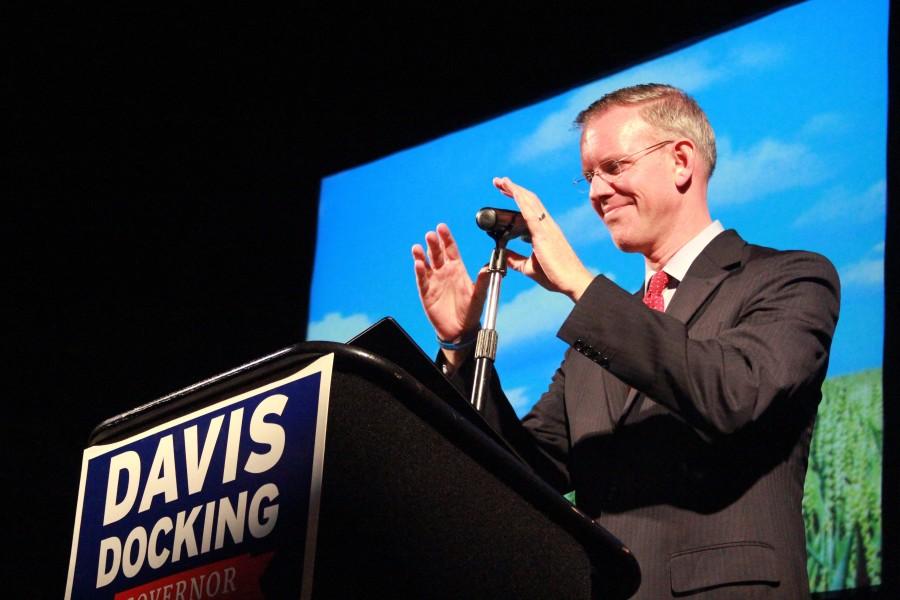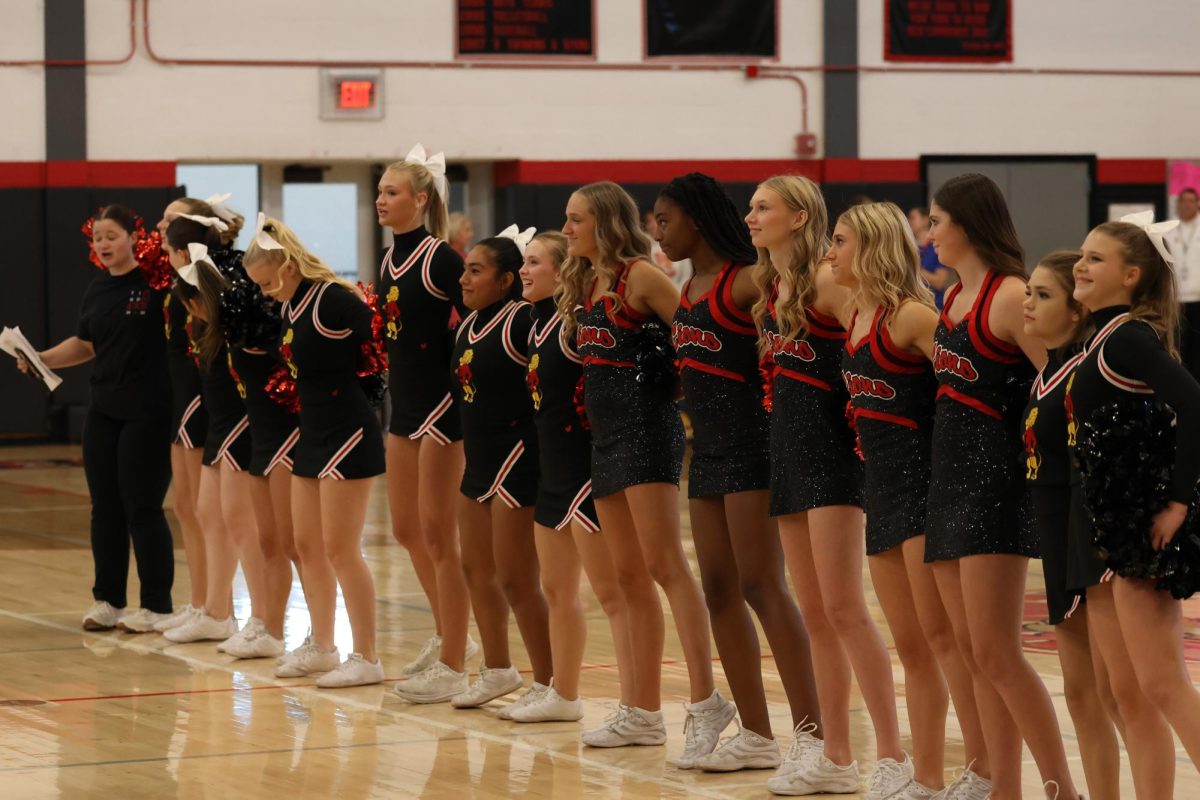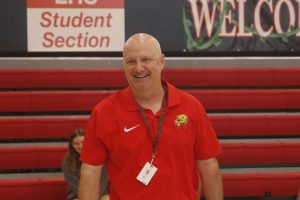Alumnus loses governor bid
House minority leader, LHS graduate falls to Brownback in governor race
Giving his concession speech, Paul Davis announced the election results at the Davis/Docking watch party at Abe and Jake’s on Nov. 4. “Moments ago, I called Gov. Brownback and congratulated him on winning his second term,” Davis said in his speech. “Brownback is a man of conviction who loves our state. His lifelong commitment to public service is remarkable, and I congratulate him on his victory tonight.”
November 12, 2014
In a state where Republicans vastly outnumber Democrats, it is not often that you see a Democratic candidate run neck-and-neck against an experienced incumbent for the state’s highest office.
Yet Lawrence High graduate Paul Davis, a Democrat, provided a strong challenge.
Last Tuesday, Nov. 4, Davis fell to Republican Sam Brownback in the governor race with a 46 percent to 50 percent disparity. Republican incumbents Sen. Pat Roberts, Rep. Lynn Jenkins and Secretary of State Kris Kobach also took majority votes in their offices, in addition to a national majority of Republican seats in the U.S. Senate.
Brownback, a former U.S. senator, first sailed to victory in the governor’s race four years ago — as was expected given his name recognition and the advantage Republicans have always had in the state.
However, the game began to change when moderate Republicans questioned Brownback’s leadership. In the weeks and months leading up to the election, polling showed a close race and sometimes favored Davis.
Although Kansas voters ultimately decided to keep Brownback in office, the Davis campaign had huge amounts of traction, particularly in the Douglas County area where Democrats always do well.
“I think because he is a local guy it has more meaning to the community as a whole,” assistant floor director for the Davis campaign Christopher Miller said during Davis’ election watch party last week. “He was born here and raised here. And because people are familiar with him, I think it’s more influential.”
Davis has been a popular public figure in Lawrence for many years, gaining support for his emphasis on public education.
“Most importantly he is for education, and in Lawrence, we value education,” district wellness coordinator Jennifer Osborn said. “It is a priority for him to take care of our teachers, which is extra important since we are in a state that has experienced education cuts.”
The politician got his own education in Lawrence.
Davis started at LHS in 1986 and graduated in 1990 when there was only one high school in town. Although soft-spoken, those who went to LHS with him described Davis as focused.
“He was a hardworking student in my class,” engineering teacher Charlie Lauts said. “He always did his assignments and overall in school, he was a good kid.”
Lauts taught Davis in her Drafting I and II classes during her first year teaching and does not recall hearing the outspoken rhetoric characteristic of a politician.
“He was somewhat quiet in my class,” she said. “[He] just sat down and did his work in class. He was never really a disturbance of any kind. Everybody liked him. He was respectful and kind to everybody else.”
As well as being a good student, Davis was well-liked among his peers, some of whom are still in the LHS community.
“He was a very intelligent guy, a good golfer, and he had this sense that he was going to be a politician,” said coach Brad Stoll, a Davis classmate. “And he was going to be successful.”
Those who knew Davis as a teenager were not surprised at his run at political leadership.
“In elementary school everybody wanted to play Wiffle Ball and football, and he wanted to play politics,” Stoll said. “He had pictures of the Kennedys on his wall and the rest of us had George Brett and Larry Bird and Dr. J and things like that.”
After graduating in 1990, Davis got a political science degree at KU, then went to law school at Washburn University in Topeka. He began serving in the Kansas House of Representatives in 2003, and was elected minority leader of the House in 2008.
Although Davis drew strong support in his home county (72 percent of Douglas County voters supported him), he lost key spots in Kansas, including Johnson and Sedgwick counties.
“This was an intense and very competitive campaign where a clear division existed between what we thought Kansas needed to do to prosper in the coming year,” Davis said in his concession speech. “But the campaign is over. We have very real challenges to face as a state and the only way we can overcome these challenges is together.”














